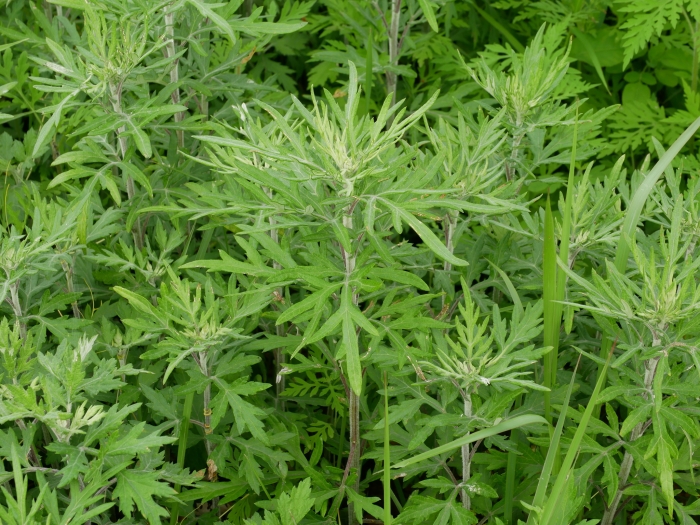Indian Wormwood
(Artemisia indica)
Indian Wormwood (Artemisia indica)
/
/

Jacy Chen
CC BY 4.0
Image By:
Jacy Chen
Recorded By:
Copyright:
CC BY 4.0
Copyright Notice:
Photo by: Jacy Chen | License Type: CC BY 4.0 | License URL: http://creativecommons.org/licenses/by/4.0/ | Rights Holder: Jacy Chen | Publisher: iNaturalist | Date Created: 2020-05-11T13:43:59-07:00 |

























Estimated Native Range
Summary
Artemisia indica, commonly known as Indian wormwood, is a perennial herb native to a variety of habitats including forest edges, scrublands, grasslands, and open areas in the Indian Subcontinent (excluding Bangladesh), mainland Southeast Asia, China (excluding Xinjiang and Qinghai), Taiwan, the Philippines, Korea, the Ryukyu Islands, and Japan. It is also found in disturbed areas such as roadsides and slopes, typically at elevations below 6,600 feet. This species is characterized by its aromatic leaves and small yellow flowers that bloom from late summer to early autumn, adding a subtle charm to garden spaces.
Indian wormwood is valued for its medicinal properties and is used in traditional medicine. It is also appreciated for its aromatic foliage and can be used as an ornamental plant in gardens. In cultivation, Artemisia indica prefers full sun to part shade and well-drained soils. It is relatively drought-tolerant once established, making it suitable for xeriscaping. However, gardeners should be cautious as it can become invasive outside its native range, spreading through rhizomes and prolific seed production. It is advisable to check local regulations before planting to ensure it is not considered invasive in the area.CC BY-SA 4.0
Indian wormwood is valued for its medicinal properties and is used in traditional medicine. It is also appreciated for its aromatic foliage and can be used as an ornamental plant in gardens. In cultivation, Artemisia indica prefers full sun to part shade and well-drained soils. It is relatively drought-tolerant once established, making it suitable for xeriscaping. However, gardeners should be cautious as it can become invasive outside its native range, spreading through rhizomes and prolific seed production. It is advisable to check local regulations before planting to ensure it is not considered invasive in the area.CC BY-SA 4.0
Plant Description
- Plant Type: Herb
- Height: 1.5-3 feet
- Width: 1-2 feet
- Growth Rate: Moderate
- Flower Color: Yellow
- Flowering Season: Summer, Fall
- Leaf Retention: Evergreen
Growth Requirements
- Sun: Full Sun, Part Shade
- Water: Low, Medium
- Drainage: Medium, Fast
Common Uses
Drought Tolerant, Low Maintenance
Natural Habitat
Native to forest edges, scrublands, grasslands, and open areas
Other Names
Common Names: Indhana, Indian Sage
Scientific Names: , Artemisia indica, Absinthium moxa, Artemisia asiatica, Artemisia asiatica, Artemisia discolor var. glandulifera, Artemisia dubia f. communis, Artemisia dubia f. congesta, Artemisia dubia f. grata, Artemisia dubia subsp. compacta
GBIF Accepted Name: